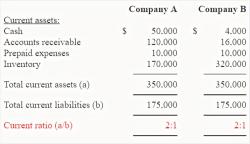What is the best stock market investment?
The notion of the "best" stock market investment is subjective and can vary significantly from one investor to another based on their financial goals, risk tolerance, investment horizon, and individual circumstances. There is no one-size-fits-all answer when it comes to the best stock market investment. However, there are several general tips and strategies that investors can consider to make informed investment decisions:
Diversification: Diversifying your investment portfolio is a key strategy to manage risk. Rather than putting all your money into a single stock, consider spreading your investments across different asset classes, industries, and geographic regions. Diversification can help mitigate the impact of poor-performing assets.
Long-Term Perspective: Successful investing in the stock market often requires a long-term perspective. Historically, the stock market has shown upward trends over extended periods. Short-term fluctuations are common, but long-term investors can benefit from the power of compounding.
Research and Analysis: Before investing in any stock, conduct thorough research and analysis. Evaluate the company's financial health, growth prospects, competitive position, and management team. Utilize fundamental and technical analysis, as well as insights from reputable sources.
Risk Assessment: Assess your risk tolerance before investing. Some stocks are more volatile than others, and your willingness and ability to tolerate price fluctuations should guide your investment decisions. Consider your financial goals and how much risk you're comfortable with.
Costs and Fees: Be mindful of the costs associated with investing. High trading fees, management fees for mutual funds or exchange-traded funds (ETFs), and taxes can erode your returns over time. Look for low-cost investment options.
Dollar-Cost Averaging: Instead of investing a lump sum all at once, consider a dollar-cost averaging strategy. This involves investing a fixed amount of money at regular intervals (e.g., monthly or quarterly), which can reduce the impact of market volatility.
Stay Informed: Keep up with financial news and market trends. While it's essential to focus on long-term goals, staying informed about current events and economic developments can help you make informed decisions.
Avoid Emotional Investing: Emotional reactions to market fluctuations can lead to impulsive decisions. It's crucial to stay disciplined and avoid making investment choices based on fear or greed.
Seek Professional Advice: If you're uncertain about your investment choices or lack the time and expertise to manage your portfolio, consider seeking advice from a qualified financial advisor or investment professional.
Consider Passive Investing: Passive investment strategies, such as index funds and ETFs, offer diversified exposure to the market and can be an excellent choice for investors who prefer a hands-off approach.
Set Realistic Goals: Establish clear investment goals, such as retirement savings, buying a home, or funding education. Your goals should drive your investment strategy.
Review and Adjust: Periodically review your investment portfolio and make adjustments as needed. Rebalancing your portfolio ensures that it aligns with your goals and risk tolerance.
Ultimately, the best stock market investment for you will depend on your individual circumstances and objectives. It's essential to have a well-thought-out investment plan that considers your risk tolerance, goals, and time horizon. Additionally, maintaining a diversified portfolio and staying informed about your investments can contribute to long-term financial success. Consider consulting with a financial advisor to help tailor an investment strategy that suits your needs.
Identifying the Best Stock Market Investment Options
There are a number of factors to consider when identifying the best stock market investment options for you. These include your investment goals, risk tolerance, and time horizon.
Investment Goals
What are your investment goals? Are you saving for retirement? Are you looking to generate income? Are you hoping to grow your wealth over the long term? Once you know your investment goals, you can start to narrow down your investment options.
Risk Tolerance
How much risk are you comfortable with? The stock market can be volatile, so it is important to choose investments that are appropriate for your risk tolerance. If you are risk-averse, you may want to consider investing in more conservative investments, such as bonds or dividend-paying stocks. If you are more risk-tolerant, you may want to consider investing in growth stocks or other riskier investments.
Time Horizon
How long do you plan to invest for? If you are investing for the long term, you have more time to weather market volatility and to see your investments grow. If you are investing for the short term, you may want to consider more conservative investments that are less likely to lose value in the short term.
Top Stock Market Investment Choices: Where to Put Your Money
There are a number of different stock market investment options to choose from. Here are a few of the most popular options:
- Individual stocks: Investing in individual stocks gives you the most control over your investments. However, it is important to do your research before investing in individual stocks, as there is more risk involved.
- Index funds: Index funds track a specific market index, such as the S&P 500. Index funds are a good way to invest in the stock market without having to pick individual stocks.
- Mutual funds: Mutual funds are a type of investment company that pools money from investors to invest in a portfolio of securities. Mutual funds can be a good way to diversify your investments and to gain exposure to different sectors of the market.
- Exchange-traded funds (ETFs): ETFs are similar to mutual funds, but they trade like stocks on an exchange. ETFs can be a good way to invest in the stock market without having to pay commissions.
Stock Market Investments: Selecting the Most Promising Opportunities
Once you have considered your investment goals, risk tolerance, and time horizon, you can start to select the most promising stock market investment opportunities. Here are a few tips:
- Do your research. Before investing in any stock or fund, it is important to do your research and understand the company or fund. You can read financial statements, analyst reports, and news articles to get a better understanding of the investment.
- Diversify your investments. Don't put all your eggs in one basket. Diversify your investments across different asset classes, sectors, and geographic regions. This will help to reduce your risk if one investment performs poorly.
- Rebalance your portfolio regularly. As your investments grow and change, it is important to rebalance your portfolio regularly to ensure that it still aligns with your investment goals and risk tolerance.
Conclusion
Choosing the best stock market investment options for you is a personal decision. It is important to consider your investment goals, risk tolerance, and time horizon when making your investment choices. You should also do your research and diversify your investments to reduce your risk.












